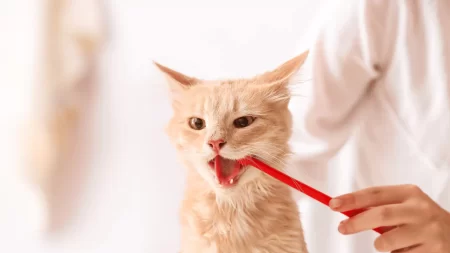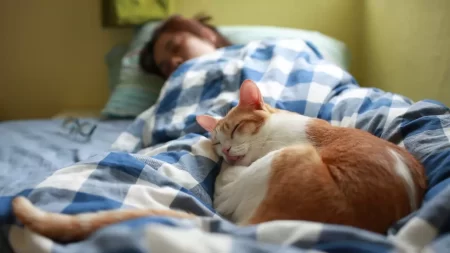Cats are beloved companions for many people, but they are not immortal. The question of when cats die is not easy to answer, as it depends on various factors such as breed, health, lifestyle, and environment. However, some general guidelines can help cat owners understand the average lifespan of a cat, the signs of aging, and how to help their cat live longer and cope with the loss.
What is the Average Lifespan of a Cat?
According to the American Association of Feline Practitioners (AAFP), the average lifespan of a cat is about 15 years, but some cats can live much longer. The oldest cat ever recorded was Creme Puff, who lived to be 38 years old. However, such longevity is rare and depends on many factors, such as:
Factors that Can Affect Lifespan
Some of the factors that can influence how long a cat lives are genetics, breed, diet, weight, spay/neuter status, indoor/outdoor access, and preventive care. For example, mixed-breed cats tend to live longer than purebred cats, as they have more genetic diversity and less risk of inherited diseases. Spayed and neutered cats also live longer, as they have lower chances of developing reproductive cancers and roaming behaviors. Indoor cats generally live longer than outdoor cats, protecting them from dangers such as cars, predators, and diseases.
Life Stages of Cats
Cats go through different life stages as they age, and each stage has its own characteristics and needs. The AAFP and the American Animal Hospital Association (AAHA) have updated the cat life stages as follows:
- Kitten: Birth to 1 year
- Young adult: 1 to 6 years
- Mature adult: 7 to 10 years
- Senior: 10 years and older
- End-of-life: Any age
These age designations help cat owners and veterinarians to provide appropriate care and monitor the physical and behavioral changes that occur at different stages of feline life.
Signs of Aging in Cats
As cats get older, they may show signs of aging that indicate a decline in their health and well-being. Some of these signs are:
- Changes in behavior and health: Older cats may become less active, less playful, less curious, or less social. They may also sleep more, groom less, or show signs of confusion or disorientation. They may have difficulty jumping, climbing, or using the litter box. They may also develop chronic conditions such as arthritis, kidney disease, hyperthyroidism, diabetes, or dental disease. These conditions can cause symptoms such as weight loss, increased thirst, increased urination, vomiting, diarrhea, bad breath, or changes in appetite.
- Dental health: Dental health is very important for cats of all ages, but especially for older cats. Dental disease can cause pain, infection, inflammation, and tooth loss. It can also affect the overall health of the cat, as bacteria from the mouth can enter the bloodstream and cause damage to other organs. Therefore, it is essential to provide regular dental care for your cat, such as brushing, dental treats, and professional cleanings.
How to Help Your Cat Live Longer?
While there is no guarantee that your cat will live a long life, there are some things you can do to help your cat live longer and healthier, such as:
- Proper nutrition: Feeding your cat a high-quality, balanced, and appropriate diet is one of the best ways to support your cat’s health and longevity. Choose a cat food that meets the nutritional needs of your cat’s life stage and condition, and avoid overfeeding or underfeeding your cat. Provide fresh water at all times, and consider adding wet food or a fountain to increase your cat’s hydration.
- Regular vet check-ups: Taking your cat to the vet at least once a year, or more often if your cat is older or has a chronic condition, is vital for detecting and treating any health problems early. Your vet can also advise you on the best preventive care for your cat, such as vaccinations, parasite control, and spay/neuter. Your vet can also help you monitor your cat’s weight, behavior, and quality of life.
- Creating a safe environment: Keeping your cat indoors or providing a secure outdoor enclosure can protect your cat from many hazards and threats that can shorten your cat’s life. You can also make your cat’s indoor environment more comfortable and stimulating by providing toys, scratching posts, hiding places, perches, and windows. You can also cat-proof your home by removing any potential dangers, such as toxic plants, chemicals, cords, or small objects.
Coping With The Loss of a Cat
Losing a cat can be a devastating and heartbreaking experience, and it is normal to feel grief and sadness. However, there are some ways to cope with the loss of a cat and honor your cat’s memory, such as:
- Understanding the grieving process: Grief is a natural and healthy response to loss, and it can manifest in different ways, such as denial, anger, bargaining, depression, and acceptance. There is no right or wrong way to grieve, and everyone has their own pace and style. It is important to acknowledge and express your feelings, and to be patient and gentle with yourself.
- Memorializing your cat: Creating a memorial for your cat can help you celebrate your cat’s life and keep your cat’s memory alive. You can do this by making a photo album, a scrapbook, a collage, a painting, or a sculpture of your cat. You can also plant a tree, a flower, or a shrub in your cat’s honor, or donate to a cat shelter or a charity in your cat’s name.
- Seeking support if needed: Sometimes, the loss of a cat can be overwhelming and isolating, and you may need some extra support and comfort. You can seek support from your friends, family, or other cat lovers who understand your loss. You can also join a pet loss support group, online or in person, or talk to a counselor or a therapist who specializes in pet loss.







